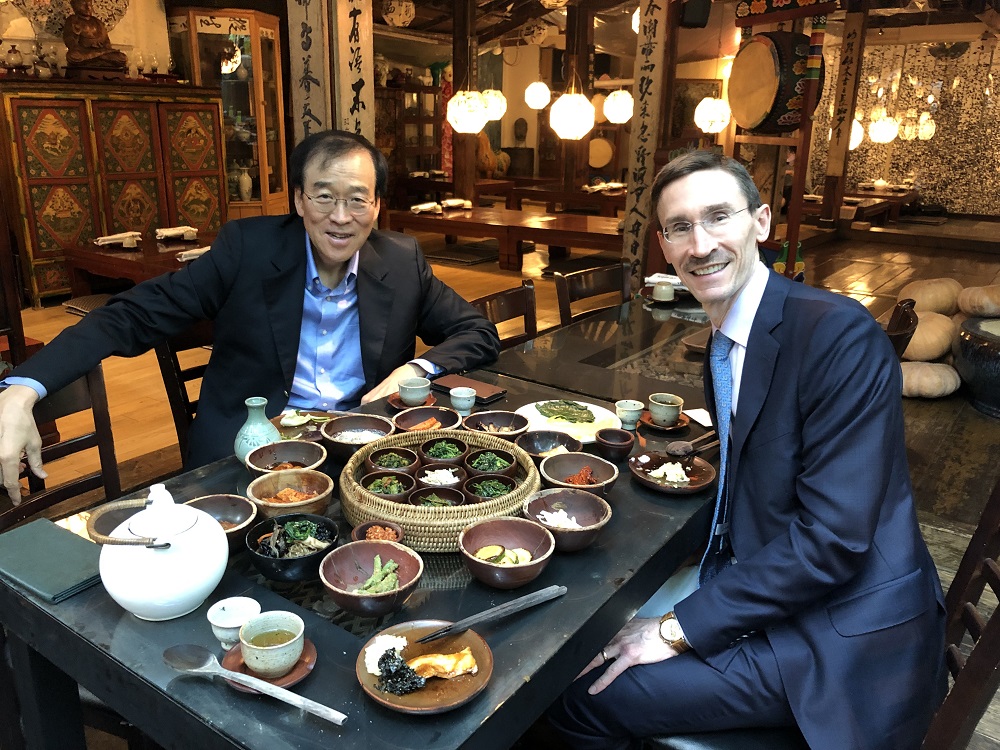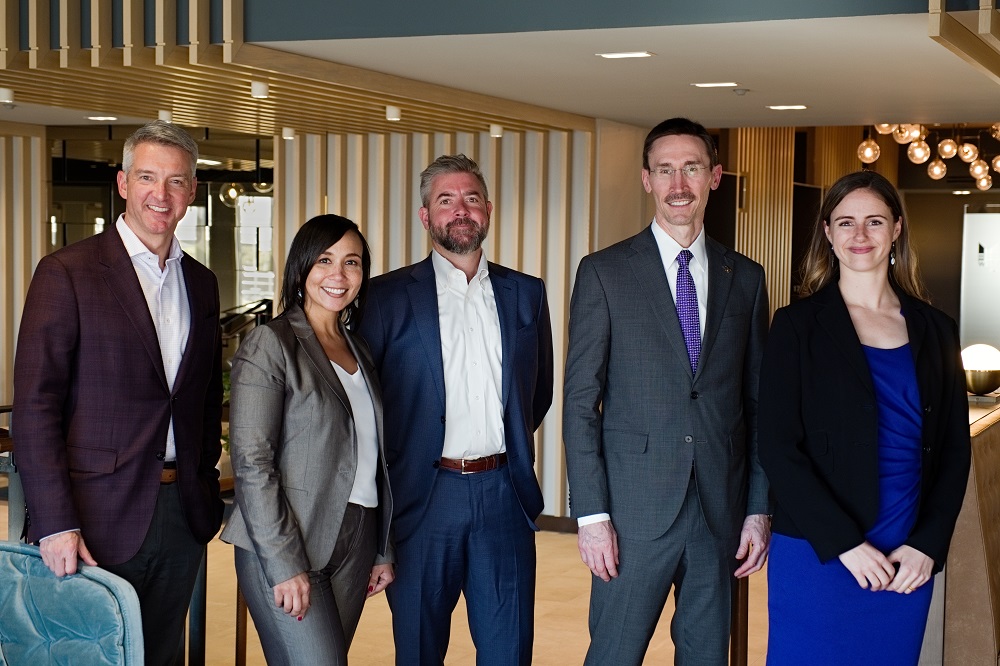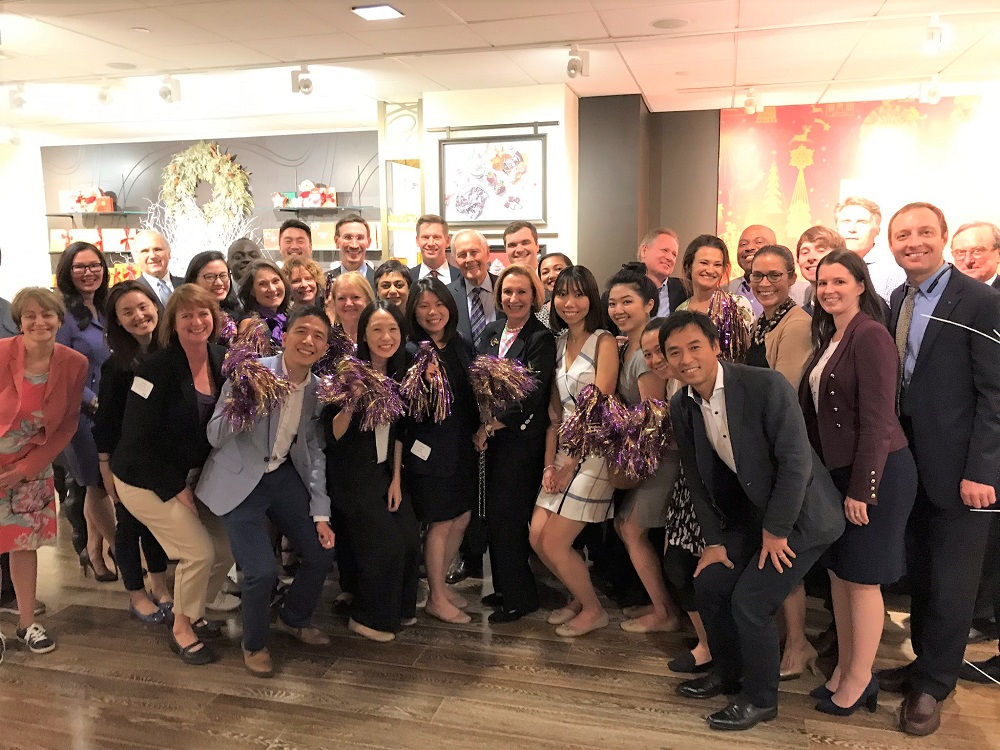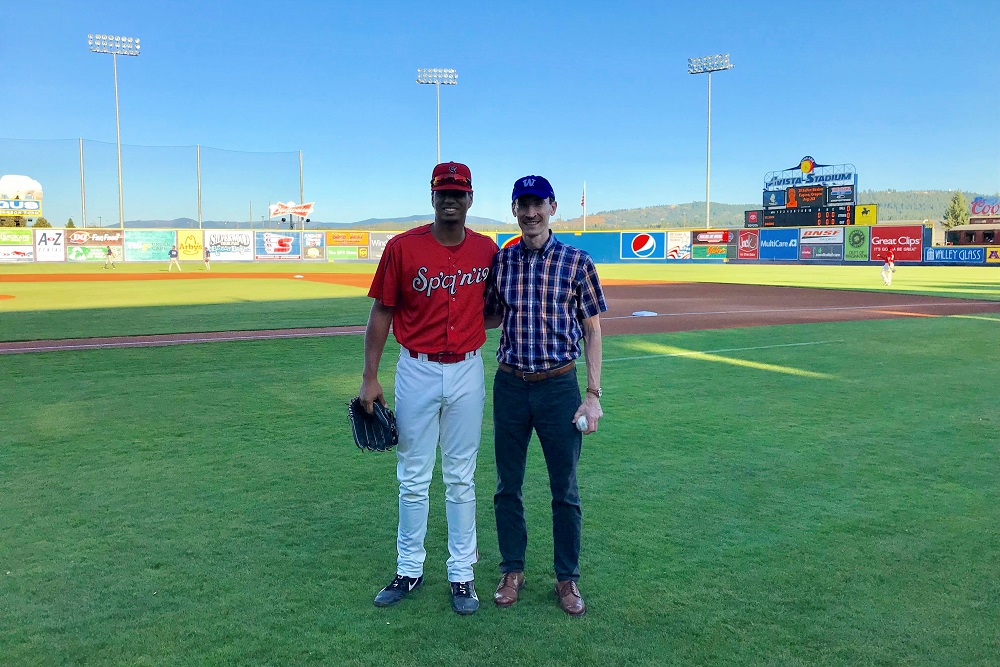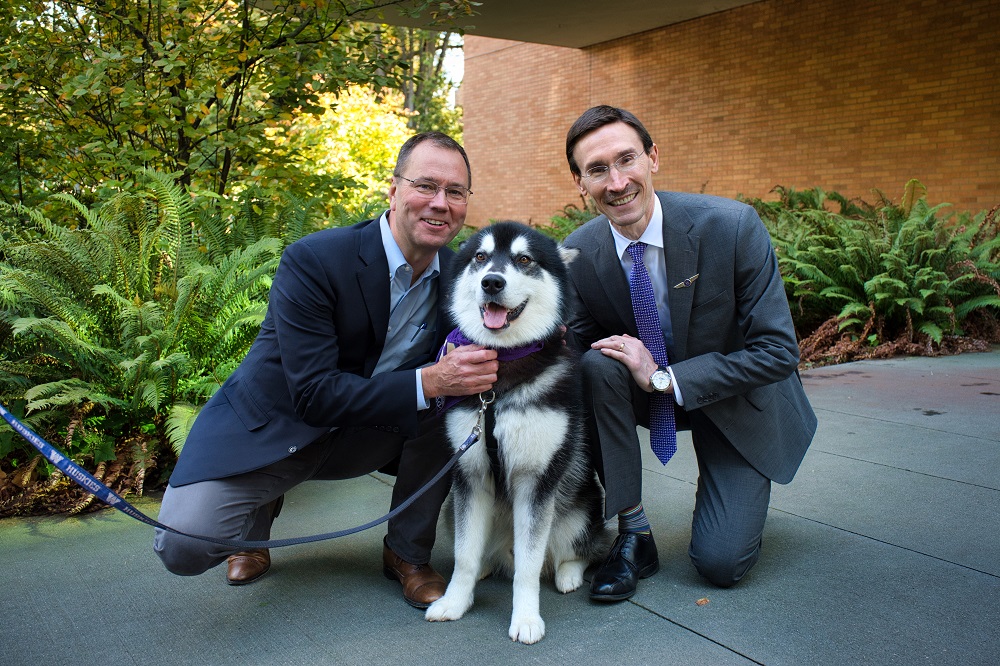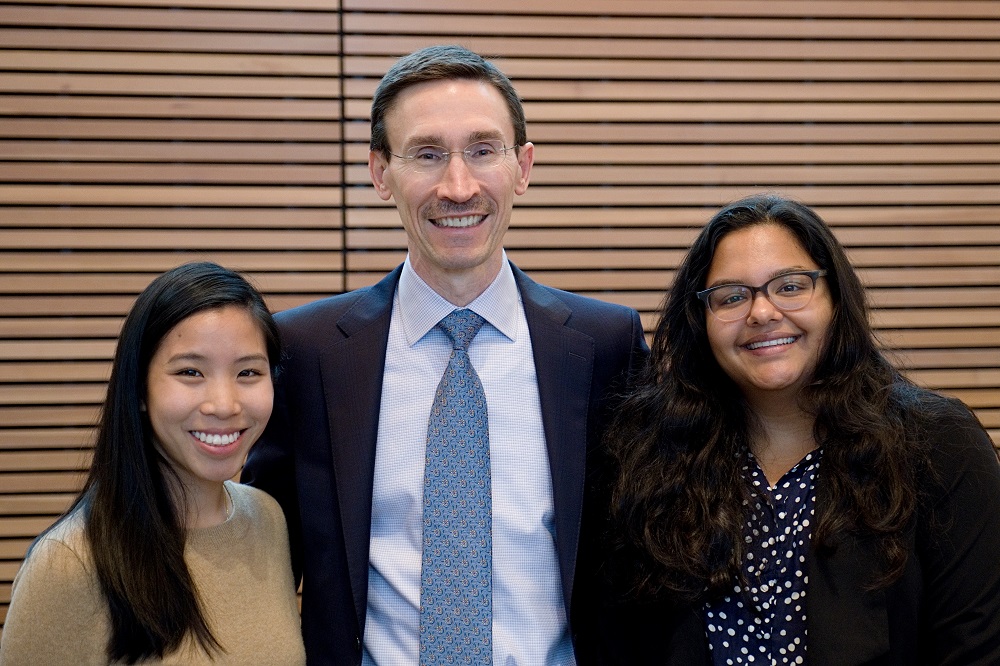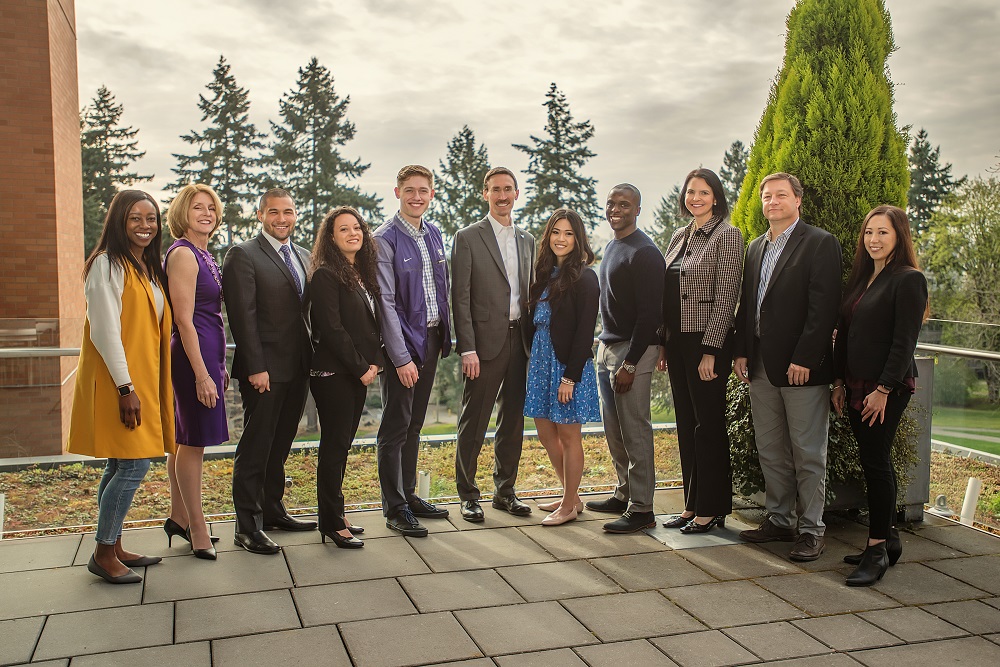Better Together, Better Tomorrow: Thoughts on the future of Foster by Dean Frank Hodge
Frank Hodge became the Orin and Janet Smith Dean of the University of Washington Foster School of Business on July 1, 2019. Since then, he’s been relentlessly on the road and in the air. He’s stood on a pitcher’s mound in Spokane, toured the Nasdaq in New York, and met with alumni, business leaders and peers in conference rooms, restaurants and reception halls around the world, as well as faculty, staff and students right here at the Foster School. Through it all, he’s done a lot of listening and thinking to inform his plan for the Foster School’s future.
Andrew Krueger, Foster’s director of alumni engagement, recently sat down with Dean Hodge to talk about his first six months on the job.
AK: You’ve recently been at alumni events in Seattle, San Francisco, Spokane and New York, as well as Seoul, Tokyo and Taipei. Are you enjoying the experience?
FH: Very much so. Not only the formal gatherings but all the happenstance meetings. I almost can’t go through an airport now without someone yelling “coach!” It happens all the time at SeaTac, but also in places like New York and San Francisco.
It drives home the fact that we have alums everywhere. And having the opportunity, as dean, to reconnect with them has been energizing. I walk away with a smile on my face and a sense of pride in being able to carry the Foster flag.
What is the role of a business school today?
Capitalism has its critics. And some individual capitalists behave badly. But the far majority of business people are out to make a positive impact on people and their communities. When undertaken in an ethical and sustainable way, capitalism is something to celebrate. It facilitates an unparalleled standard of living. It drives innovation. And it allows people and organizations to have an incredible impact around the world.
At the Foster School, we challenge our students to consider how they, and the organizations they work for, can contribute to society in positive ways. Doing so requires that we provide students the technical skills they need to succeed, but also, perhaps more importantly, the mindset to always be looking to make things better. To innovate. To improve. If we’re teaching a mindset that starts with the question how can I help you?—we’ll find ways to make our communities better.
What does being a public school mean to you?
To me, it means we are a team player; an integral part of a bigger picture. We play a key role in the health of Washington state and everyone who lives here. We do not take this responsibility lightly. That is why we work hard to foster connections across campus, across Seattle and across the state. I’m very proud of the fact that we’re a public institution and we have a mission to educate the future business leaders of Washington and the world beyond.
What is the biggest challenge facing the Foster School?
I think as you get better and better, it’s easy to become satisfied and not drive as hard to be better tomorrow than we are today. Measuring ourselves against our prior performance is important to me. We want to continuously strive to find ways, even very small ways, to better ourselves. If we do this I believe we will naturally separate ourselves from our competition and create an inclusive and innovative culture that people are drawn to and want to be a part of.
I think that’s true for any team that performs at a really high level. If you’re winning championships, your competition is who you play against on game day. But what separates the truly great from the very good is how you compete all the other days.
How do you view innovation at the Foster School?
I like to think we’ve been as innovative as anyone, but the key to being known nationally as an innovator is to always be innovating. That is how we can proactively meet the needs of employers and be a place where students want to be. Instilling this innovative mindset in everything we do at Foster is something I am working hard on. We also need to share the innovative things we are already doing with others, which I’ve been doing throughout my travels. I would eventually like people who hear the word “Foster” to think “inclusive, innovative, impactful.”
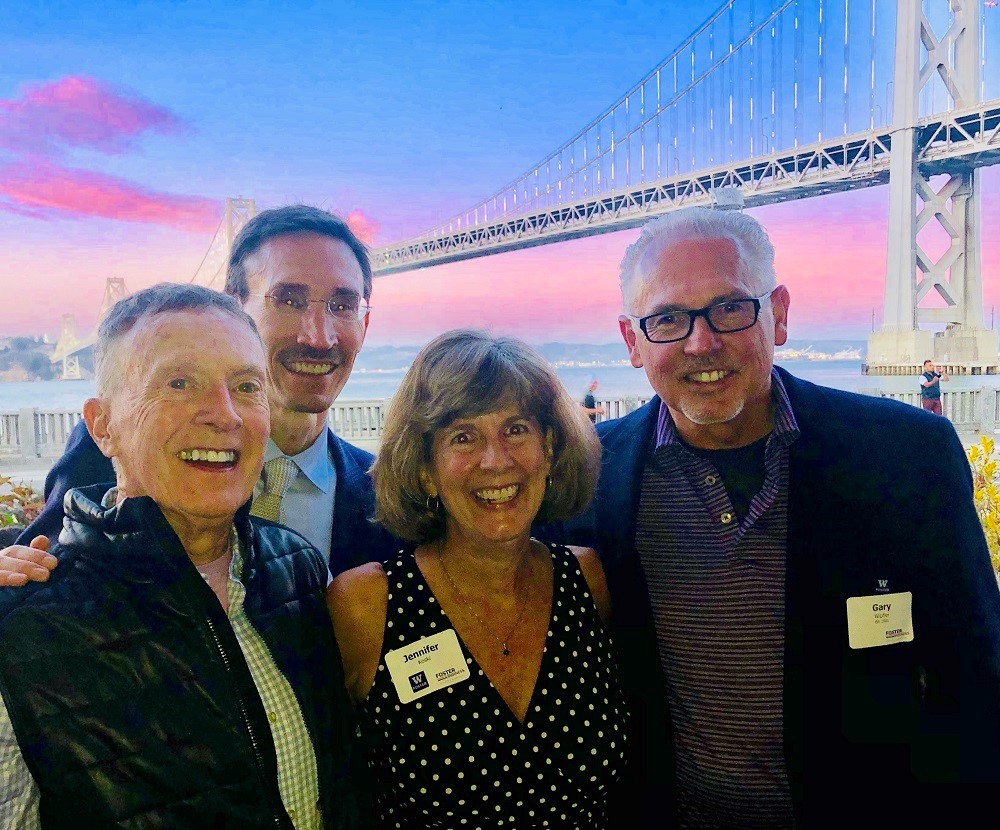
Neal Dempsey (BA 1964) of Bay Partners and Gary Wipfler (BA 1981) of Apple welcome Dean Hodge and Professor Jennifer Koski to the Bay Area.
What’s an example of Foster’s innovation?
Our Hybrid MBA Program is one of our biggest innovative successes. Lots of places are offering online programs. We wanted to capture the efficiency of offering courses online, with the critically important aspect of building a network. Our Hybrid Program does that and does it well. We were not interested in offering a program to 10,000 people around the world so we could make a lot of money. We were interested in finding ways to provide an exceptional educational experience to those who could not be on campus every day. We decided a hybrid model—four intensive days at the beginning of each quarter on campus and the rest of the quarter online—was the way to go. Once we made the decision to enter this space, I think we did it exceptionally well.
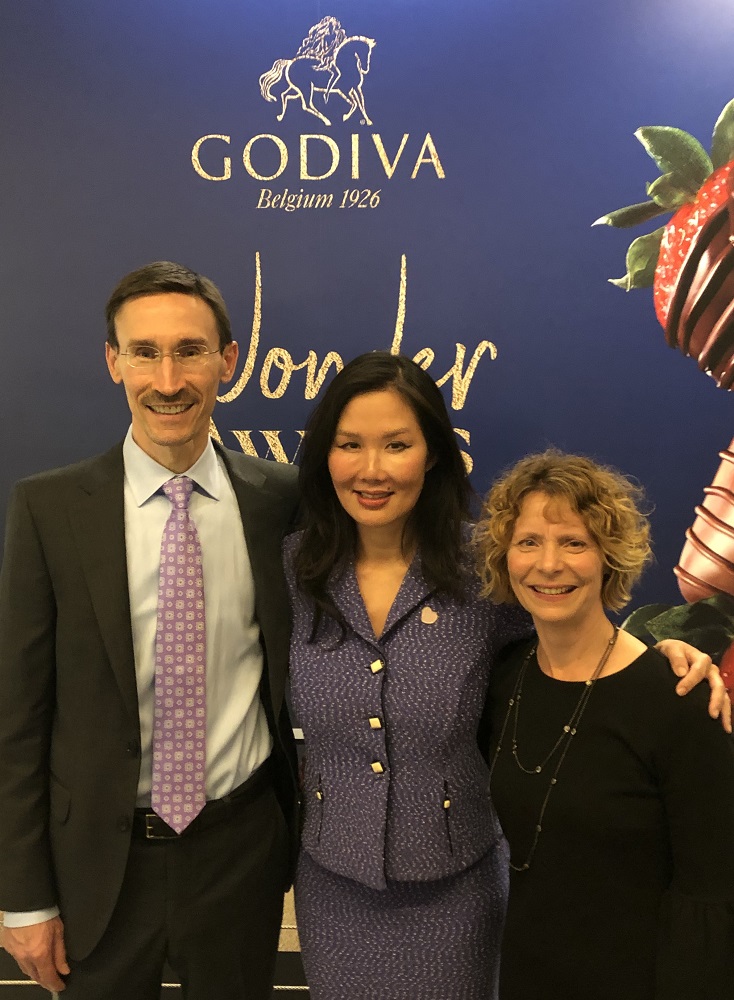
Advisory Board Chair and Godiva CEO Annie Young-Scrivner (BA 1990) welcome Frank and Abby Hodge to New York.
One of the biggest challenges to raising Foster’s reputation nationally is also one of our biggest strengths: Seattle. Once people come here, few want to leave. How can we address this?
[laughs] First, this is a great “problem” to have! Being located in one of the two hottest economic markets of the last decade is a true blessing. We take full advantage of this, both in terms of connecting with iconic Seattle-based companies to provide experiential learning opportunities, and in terms of making sure that Foster is well represented among their hires every year.The disadvantage of having so many of our graduates want to stay in Seattle is that the Foster name, and the quality education we provide, is not as well known nationally as it should be. I think our reputation lags our performance. I aim to change that. One way I am doing so is by traveling around the globe sharing with others what we are doing at Foster. I think it is only a matter of time before we have a strong national, and eventually international, reputation for excellence.
What does diversity and inclusion mean to you?
The “Foster ID Program” is about being welcoming and inclusive so that we naturally become more diverse. I believe that “I” comes before “D.” And we are working every day to be more inclusive, not only for students, but also for faculty, staff, alums—anyone who walks through our doors.
I also think it is important to recognize that the most creative solutions to the most complex problems come from bringing together diversity of thought. Diversity of thought comes from people who are diverse in every way imaginable: sexual orientation, ethnicity, political views, socioeconomic status and more.
My dream is to bring together people who combine ideas in ways they have never been combined before, to solve problems that have never been solved before.
How can we bring greater diversity to Foster?
I want people, when they think of the Foster School and when they visit the Foster School, to feel welcome when they walk through our doors and to sense a spirit of inclusion that invites them to stay or, better yet, inspires them to stay. We need to be true to that. When we put out the welcome mat, we mean, “Welcome, everyone. Stay awhile. Be a part of our community.”
We also need to make sure that everyone knows we are here. Otherwise, they’re not going to walk through that front door over our welcome mat. That’s the messaging part. That’s where I think being a part of The Consortium, being a part of the Forté Foundation, being part of Management Leadership for Tomorrow (that was on campus this past summer) is so important.
As we spread the word that the Foster School is a welcoming, inclusive, innovative place that desires to positively impact communities, people will want to come see what we are all about. It’s a long process, no doubt, but something we can achieve. Something I believe we must achieve if we are going to be better tomorrow than we are today.
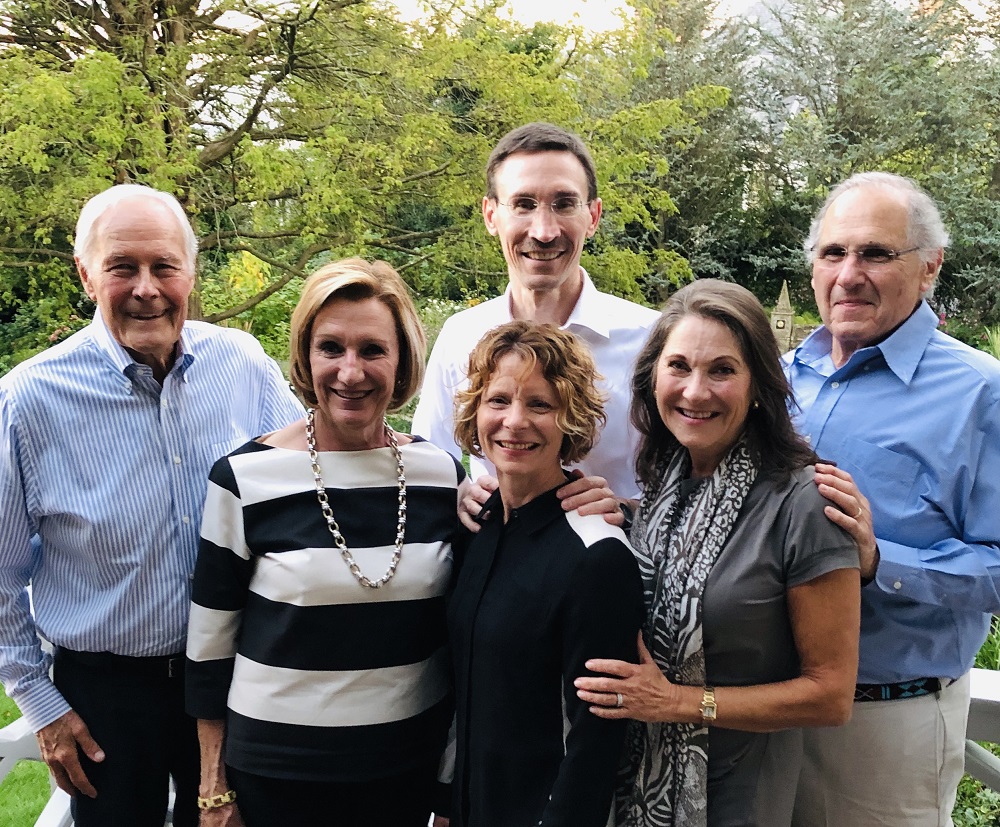
Advisors Susan Bevan (MBA 1976) and Tony Daddino welcome the Hodges to their Greenwich home, with Emeritus Advisory Board Chair Lex Gamble (BA 1959) and his wife, Ann Marie.
You recently participated in the Deloitte Transition Lab, which enables leaders to step back and get clarity on organizational priorities. What did you take away from the experience?
I went in knowing that the overarching theme of “better together, better tomorrow” is important to me—”better together” is about community and connections and “better tomorrow” is about being innovative and having an innovative mindset.
The “better together, better tomorrow” mantra really resonates with me and I believe captures who we are today and who we aspire to be in the future.
When I was at the Transition Lab, we didn’t start with the purpose of using the word “foster” as a verb, but we kept coming back to it. What are we trying to do here? Well, we’re trying to grow something. What’s another word for grow? Foster. Fostering community. Fostering connections. Fostering innovation. Fostering purpose. Each of these “pieces of the puzzle” highlights a way we can be “better together” and/or “better tomorrow.”
I added one afterward: Fostering pride. It hit me on the plane ride home that if we’re doing all the other elements well, we will foster pride among students, faculty and staff. And this sense of pride will be contagious, drawing alumni, donors, employers to Foster.
Is “Better together, better tomorrow” your North Star?
Yes! I say it to myself every day when I walk through the doors of the Foster School. It helps remind me of what I hope to achieve during the day. Like I mentioned before, if each and every person within Foster—including myself—can find even a small way to be better together, better tomorrow, we’ll excel over the long run and I think surprise a lot of people in just how good we can be.
Whether this mantra will be the North Star for the Foster School is yet to be determined. In the coming months, I’m going to foster a collaborative process to clarify our purpose, strategy and brand. At the end of this process, I want everyone to feel like they had a voice and believe in the outcome. A North Star needs be a guide that we all look to, not just me.
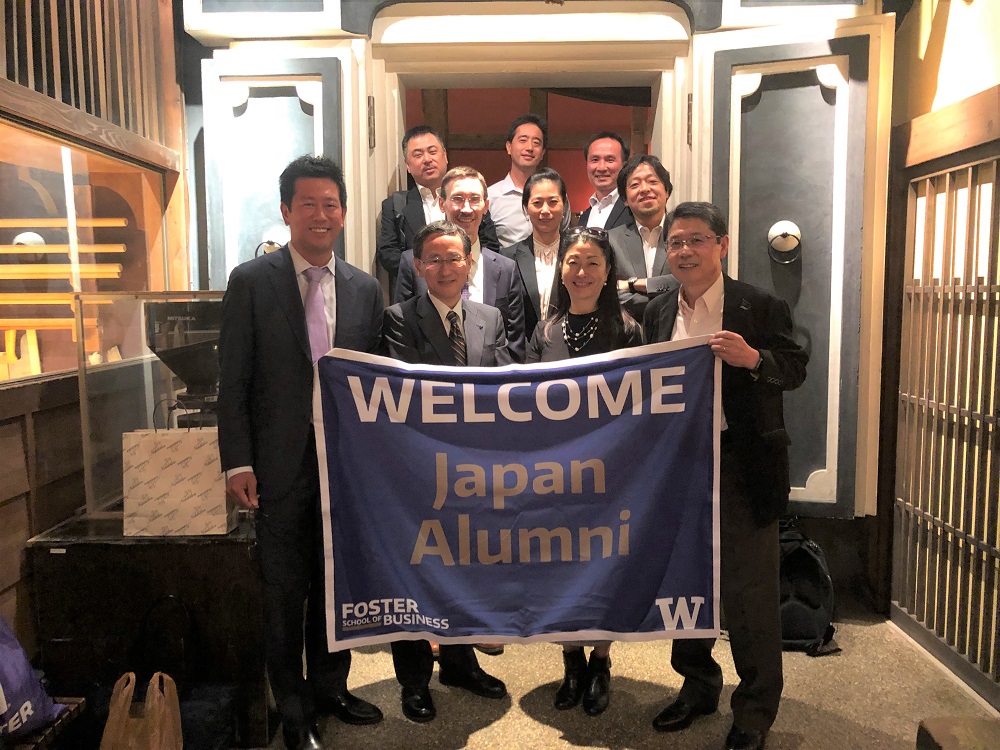 The Dean Hodge Listening Tour continues. “I hope to see you at Foster or on the road,” he says. “Let’s stay in touch.”
The Dean Hodge Listening Tour continues. “I hope to see you at Foster or on the road,” he says. “Let’s stay in touch.”

